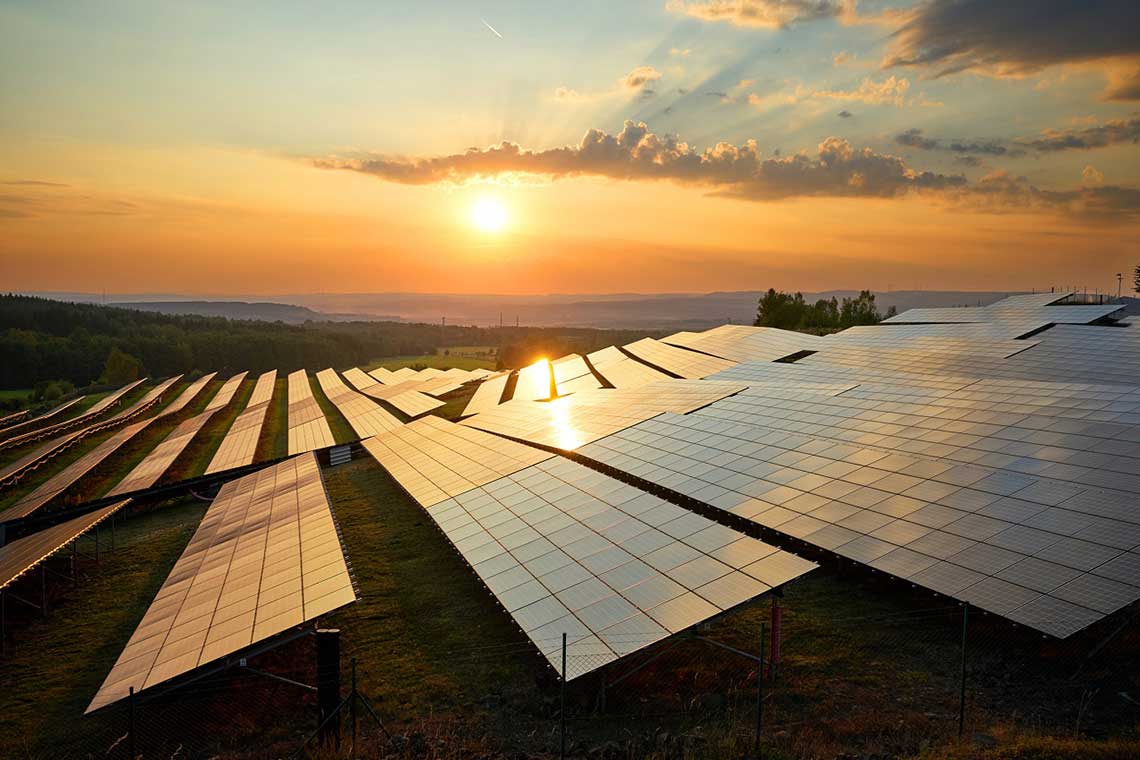
Image: Getty
The UK’s solar capacity would need to nearly triple to 35GW to decarbonise by 2030, a report into the fastest path to decarbonisation over the next decade has found.
The Thirty by 2030 report, produced for the Labour Party, outlined the fast-track strategy to meeting a net zero emissions target by 2030, a date proposed last month during its annual conference.
Under the proposals, a significant ramping up of solar capacity to 35GW would be required, a figure which would include building integrated small-scale systems and utility scale farms.
This would break down into 4.5GW capacity from small-scale, assuming an average domestic system size of 2kW, and 25.5GW from large-scale PV.
Dramatic reductions in subsidies have “nearly stalled the PV industry”, the report said, acknowledging installations will be limited over the next couple of years until government support is reinstated.
To deliver the pathway, financial incentives and removal of outstanding barriers to development are needed.
It outlines priority areas for development based on recommendations previously made by the Solar Trade Association, which include reinstating the FiT that is “essential” to supporting residential and community-scale PV, after it was shuttered in March this year and replaced with the Smart Export Guarantee, which is set to come into effect on 1 January 2020.
Other priority areas include revising the rules of the CfD scheme to allow solar PV to participate, a route to market the technology has been blocked from since 2015, and the reduction of barriers to the use of energy storage at solar PV sites would also be reduced, for instance “prohibitively” high costs and the inability to connect to distribution networks.
STA chief executive Chris Hewett said: “We welcome the ambition of the Labour target for carbon reduction by 2030 and the impact that might have on solar deployment.
“The solar industry has a track record of responding to policy drivers with a speed and scale often underestimated by traditional energy analysts. I’ve no doubt we will rise to the climate challenge over the next ten years.”
The report issues a recommendation to source 90% of electricity from renewables and low carbon sources by 2030, with the remainder coming from fossil fuels in conjunction with carbon capture usage and storage, and is based on maintaining the average historic growth rate of 2.2 GW per year.
It outlines 30 recommendations across four goals – ending energy waste, decarbonising heat, decarbonsing electricity and balancing the system – and was produced from a working group of industry professionals and experts, with inputs from across the energy sector, over a year-long period, it said.
Other areas explored include reducing energy wastage, decarbonizing heating, balancing the system and investment in R&D for marine energy and renewable or low carbon hydrogen for heating and storage.
However, there is little detail on the role of storage in balancing the system. The report suggested there should be an investigation into the right balancing of solutions, followed by rapid and extensive updates to the grid and implantation of demand side response, delivering a “revolutionised” system within a decade.
The report is clear that there is no obvious pathway to ensuring its grid balancing target. Which solution is preferred will only become clear over time once the technologies are tested and better understood, with the decision to partially rest on cost effectiveness.
It does, however, suggest an example of maintaining current backup gas generation capacity in the 2020s, expanding power storage to at least 20GW, and investing in grid enhancements.
If the recommendations are implemented in the first parliament of the next Labour government, it is “still possible to make up the ground lost under recent Conservative governments”, the report said.
Rebecca Long Bailey, shadow energy secretary, said Labour is the “only party turning their targets into detailed, credible plans to tackle the climate and environmental crisis”.
“We are working with trade unions to ensure that the changes to our energy system will be planned democratically, with the interests of workers and local communities at the heart of the transition.”
The report also makes predictions about the economical impact of decarbonisation by 2030, which it said would result in a net benefit of £800 billion due to a yearly investment of 1.9% GDP and an average of 11% higher GDP growth rate.
